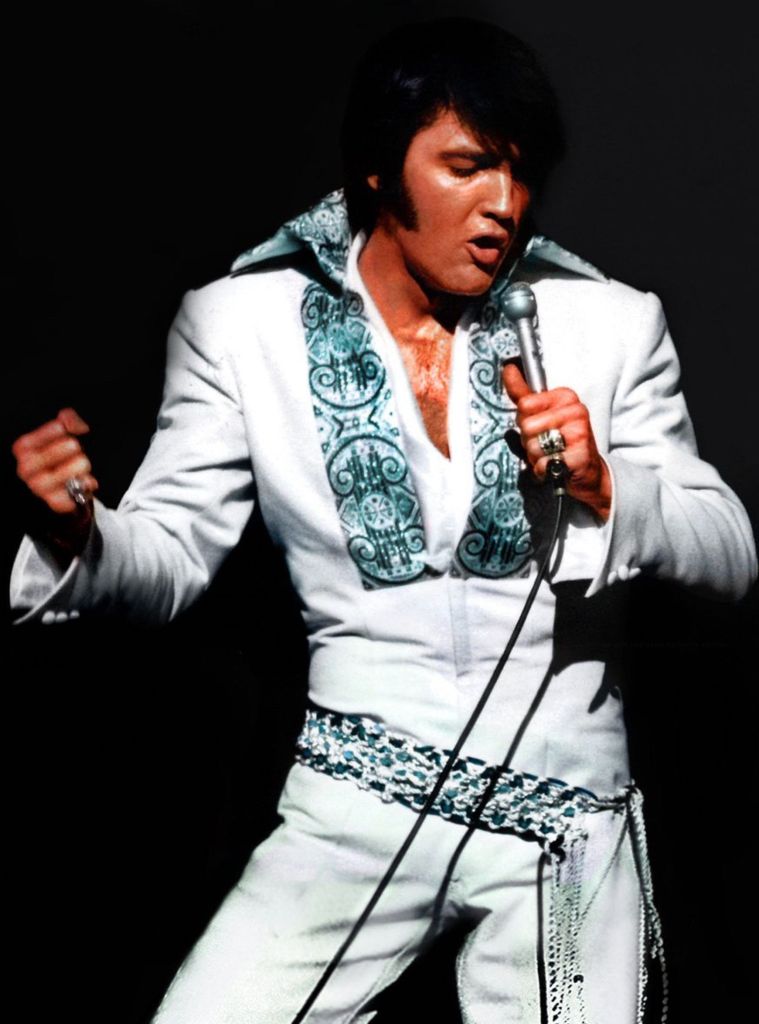
The Wonder of You was Elvis Presley’s 16th and final number 1 in his lifetime. In the five years since his last number 1, Crying in the Chapel (which dated back to 1960), the King’s career had reached the doldrums, before a dramatic comeback. Sadly, though, The Wonder of You marked the beginning of another descent – his last one.
Presley proposed to Priscilla Beaulieu at Christmas 1966, seven years after they had first met, and they married in May 1967. Earlier that year he had released the Grammy-winning gospel album How Great Thou Art, but in October his soundtrack LP to his movie Clambake registered record low sales. The Summer of Love had just passed, flower power was everywhere, and Elvis couldn’t have been more out of fashion.
His manager Colonel Tom Parker made a deal for Presley to appear in a Christmas special on TV in December 1968. The singer was initially sceptical, and he had every reason to be, seemingly forever stuck releasing one dire film after another. However, once he got talking to the show’s director and co-producer Steve Binder, he realised this could be the chance to revitalise a failing career. He was proved right. The 68 comeback special, titled simply Elvis, featured lavish numbers, but everyone remembers the back-to-basic segments, in which he performed in tight leather in front of a small crowd (his first live performances since 1961). It was a return to the Elvis of the 50s, raw and fresh, with buckets of charisma. And he looked cool as fuck. No longer would the King be willing to do whatever he was told by Parker
Elvis kickstarted a purple patch in which the King was seemingly let off Parker’s tight rein, and he went on to record some of the best material of his career, particularly during the sessions for the 1969 album From Elvis in Memphis. The album closed with In the Ghetto, which reached number two on these shores, but was held off the top spot by Thunderclap Newman’s Something in the Air. Criminally, Suspicious Minds, probably my favourite Elvis song, also stalled at number two at the start of 1970 here, despite becoming his final US number 1.
Presley was keen to get back to regular live performances, and just when things were looking up for the new decade, Parker booked him to an initial run of 57 shows over four weeks at the new International Hotel in Las Vegas. Bill Belew, who had struck gold by coming up with the King’s leather look for his comeback, designed his first jumpsuit to wear. His initial Vegas show went down a storm, and Parker booked him a five-year run in which Presley would perform every February and August. The Jordannaires chose not to join him, and longtime collaborators guitarist Scotty Moore and drummer DJ Fontana also declined.
The Wonder of You was a live recording from one of his Vegas gigs of February 1970. It was the first live number 1 since Lonnie Donegan’s My Old Man’s a Dustman (Ballad of a Refuse Disposal Officer) in 1960. Thankfully it’s not as bad as that horror show of a song, but they are similar, in that Wonder of You represents the final slide into cabaret for a once vital, dangerous artist.
The song, written by Baker Knight, was originally a top 30 single for US singer Ray Peterson in 1959. It also became a hit for number 1 artists Ronnie Hilton, and The Platters too.
Elvis turns this into an anthem in which he pays tribute to the fans that have stuck by him through thick and thin. It even mentions him by his nickname, albeit inadvertently.
‘And when you smile the world is brighter
You touch my hand and I’m a king
Your kiss to me is worth a fortune
Your love for me is everything’
It’s one big love-in really, a drunken singalong, and the King and crowd alike are all having a whale of a time. But it all feels rather hollow with the knowledge of what was to come. Elvis’s next number 1 came after his death. His Vegas residency had transformed into a bloated drug-addled, depressed, darkly-comic version of the singer here.
Since its time at number 1, The Wonder of You has become associated with football clubs Port Vale, Arsenal and Scottish team Ross County.
Written by: Baker Knight
Weeks at number 1: 6 (1 August-11 September)
Births:
Footballer Alan Shearer – 13 August
Snooker player Peter Ebdon – 27 August
Deaths:
Footballer Jesse Pennington – 5 September
Meanwhile…
9 August: Police battled with black rioters in Notting Hill, London.
20 August: England may have lost at the World Cup, but there was some good news for team captain Bobby Moore – he was cleared of stealing a bracelet in Colombia just before the tournament had begun.
21 August: The moderate Social Democratic and Labour Party was first established in Northern Ireland.
26-31 August: The third Isle of Wight Festival took place, with music from Jimi Hendrix, The Who and The Doors. This was the last of the three original festivals there, and was the largest event of its kind for years, with anywhere between 500,000 and 700,000 attending.
9 September: BOAC Flight 775 was hijacked by the Popular Front for the Liberation of Palestine after taking off from Bahrain. This was the first time a British plane had been hijacked.
